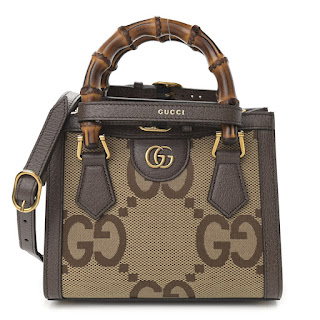The Ethical Conundrum of Triple A Replicas: A Fashion Enthusiast's Dilemma
Fashions come and go, but the allure of luxury never wanes. In a world where the latest handbag or pair of shoes can make headlines, the desire for luxury fashion is more than just a trend—it's a statement of personal style and status. However, as the price tags on these coveted items reach astronomical heights, a shadow market emerges to meet the demand for accessibility to high fashion. Within this market, the debate over triple A replica bags blurs the lines between luxury indulgence, ethical consumerism, and legal propriety.
Unpacking the Premium Quality of Triple A Replica Bags
At the forefront of this clandestine trade in luxury replicas are the triple A replicas—products that aim to match, if not surpass, the quality of the original designer goods. Triple A replicas are crafted with meticulous attention to detail, often using high-grade materials and advanced manufacturing techniques that result in near-identical copies of their genuine counterparts.
But don't be fooled by the price differential; while triple A replicas may share a striking resemblance to designer bags in terms of appearance, they differ significantly in pedigree. Authentic luxury items are underpinned by the legacy and heritage of their brands, with craftsmanship and exclusivity that triple A replicas can only imitate, not replicate.
The Temptation of Luxury at a Fraction of the Cost
The appeal of triple A replicas is more than skin deep. For the average consumer, the exorbitant cost of a genuine luxury item is often prohibitive. When faced with the option of a nearly indistinguishable replica at a fraction of the cost, the economic allure is hard to resist.
Beyond cost, triple A replicas offer a democratic pathway to luxury. They bring the exclusivity of high fashion into the hands of those who might otherwise never experience it. In a sense, they democratize the fashion landscape, allowing individuals to partake in trends and styles that would otherwise be out of reach.
Balancing the Scales of Ethical Consumerism
The ethical implications of the replica market are complex and contentious. On one hand, the pursuit of fashion luxury through replicas can be viewed as a victimless crime—a means for enthusiasts to express themselves without causing harm. On the other, it is argued that supporting replicas diverts potential profits away from original designers and brands, impacting their ability to innovate and produce more sustinable practices within the industry.
There is also the issue of intellectual property rights. While the legal status of replicas varies by jurisdiction, purchasing or selling triple A replicas that infringe on trademarks or copyrights can have legal consequences. It's a fine line for consumers to walk, particularly when their values and the law may not align.
Tracing the Legitimacy of Triple A Replicas
In the quest for a good deal on a luxury replica, it's crucial to differentiate between ethically-produced items and those that are the product of illegal counterfeiting. A triple A replica that is openly marketed as such, with no attempt to deceive the buyer, may offer a less morally murky option than a counterfeit item masquerading as genuine.
Understanding the origin and intentions of the seller is key. Retailers who clearly disclose the nature of their replica products and offer them at a markedly lower price point than the originals often operate in the gray area of legality and ethics. It's a buyer beware market, and knowledge is the best defense against unwittingly supporting counterfeit practices.
The Path to Informed Choice
For the fashion enthusiast weighing the allure of a triple A replica against ethical concerns, knowledge and self-awareness are indispensable tools. Reflecting on personal values and the impact of purchasing decisions on the broader fashion ecosystem can guide a more conscious approach to luxury indulgence.
Making an informed choice involves considering the full picture. Is it possible to ethically support the replica market? What are the implications of choosing replicas over other options, such as pre-owned or sustainable luxury items? Engaging with these questions can lead to a deeper understanding of the choices available and the values that underpin them.
Ethical Fashion In the Mirror of Triple A Replicas
The mirror reflects more than a likeness—it carries the weight of the choices behind it. Triple A replica bags are more than mere commodities; they embody the ongoing discourse on luxury, accessibility, and ethical fashion. As consumers, our purchasing decisions are powerful reflections of our values and our participation in the fashion narrative.
Navigating the world of replicas demands a nuanced perspective. It requires us to look beyond the surface and consider the broader implications of our choices. In this reflection, we may find the answers that lead to a more ethical and fulfilling relationship with fashion and luxury.



Comments
Post a Comment